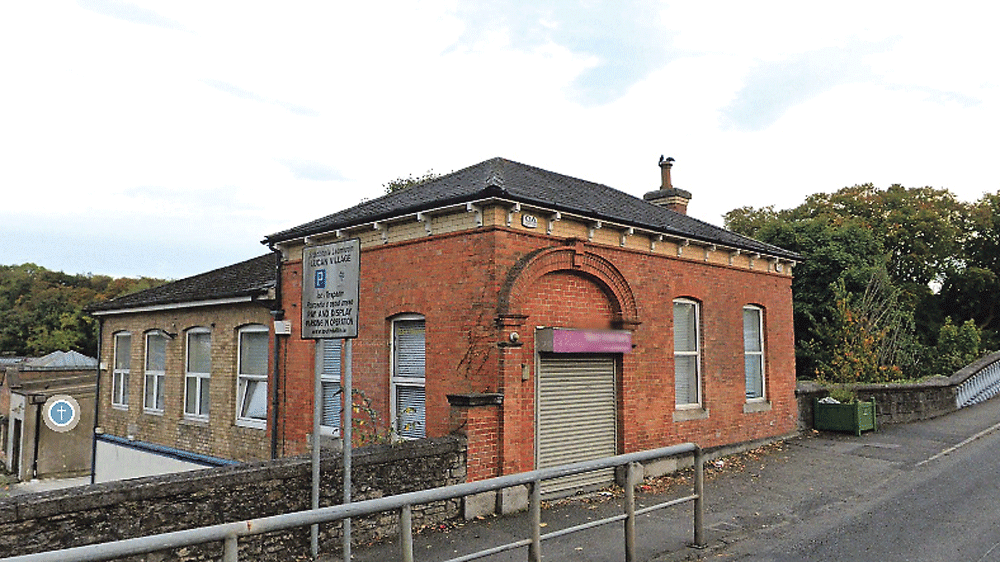
Appeals lodged over mosque plans at industrial estate
Two planning appeals have been lodged against plans for a mosque in a Lucan industrial estate.
Permission was granted in August by the council for Daar-E-Arqam Trust to convert a former shop and showroom in Hills Industrial Estate, Lower Lucan Road into a “place of worship and community centre”.
Daar-E-Arqam Trust, formerly known as Lucan Islamic Centre, operate an Islamic college or ‘madrasa’ and provide prayer services for the Islamic community in Lucan and south Dublin.
The group sought permission for change of use for Units 39-40 from a furniture shop and window shop/showroom to a multi-functional space “to include a place of worship and community centre (with ancillary office space)”, plus minor internal alterations to layouts and alterations to the elevations to facilitate the change of use and the provision of car parking spaces and bicycle spaces.
The units, also known as Stewart’s Crafts building, is a protected structure however a report from South Dublin County Council’s architectural conservation officer deemed that “the proposed change of use to a religious/cultural centre is not considered to have any negative impacts on the protected structure”.
Permission was granted by SDCC’s planning department with a number of conditions, including that no “banners, canopies, flags, or other projecting elements” be added to the structure without further planning permission, and that there shall be “no public address system either in the minaret or externally elsewhere on the site” to protect nearby residential amenities.
Two separate appeals were lodged with An Coimisiún Pleanála (ACP) on September 3, including one on behalf of Hills Mills Management Company Limited, who are property managers of the Hills Industrial Estate, from BPS Planning Consultants Ltd.
In their appeal, they noted that the proposed development is “sited within a working industrial estate in an area where there is considerable demand from industrial and business companies to locate therein” and that the decision to grant permission for the mosque would contribute to “erosion of industrial spaces close to existing settlement centres”.
“Our client finds itself trying to defend the estate’s permitted uses under the zoning from sustained attack from the applicant and now by SDCC.
“ACP is asked to refuse planning permission to sustain the industrial estate in its necessary enterprise and employment uses,” the appeal noted.
They also noted “significant” concerns over the council’s decision to grant permission despite a report from the SDCC Roads Department recommending refusal.
“The generation of additional traffic on the road network that is extremely congested is undesirable,” the roads department report said, adding that “above maximum amount of parking proposed” for improper parking at the development may lead to increased amounts of traffic generation than suggested in the Traffic and Transport Assessment submitted.
The second appeal, submitted by a local resident, also asked that the planning decision be rejected on the grounds of insufficient parking, adding that the main entrance to the units “opens out onto the busiest crossing of the River Liffey between Leixlip and Hueston station”.
“Please understand this bridge is already not able to cope with the level of traffic crossing it especially at peak times as we often spend twenty to thirty minutes travelling the Five hundred meters from the top of the Laraghcon Hill to cross the bridge, having additional traffic will make this more difficult,” the appeal read.
However the council’s planning department were of the opinion that the site is readily accessible by a wide variety of transport modes and that “exceptional circumstances exist to support the proposal in its current form, and that the Roads Department’s concerns, which are isolated to traffic volumes rather than safety, can be readily addressed by way of a planning condition that limits traffic movements to the less busier periods of the day”. A decision is due from An Coimisiún Pleanála by January 2026.
Funded by the Local Democracy Reporting Scheme

